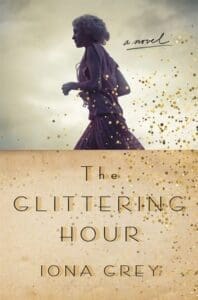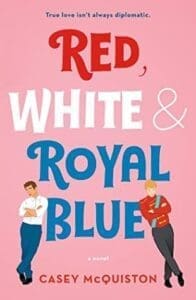Book Blurb:
With her father recently moved to a care facility for his worsening dementia, Beth Walsh volunteers to clear out the family home and is surprised to discover the door to her childhood playroom padlocked. She’s even more shocked at what’s behind it—a hoarder’s mess of her father’s paintings, mounds of discarded papers and miscellaneous junk in the otherwise fastidiously tidy house.
As she picks through the clutter, she finds a loose journal entry in what appears to be her late mother’s handwriting. Beth and her siblings grew up believing their mother died in a car accident when they were little more than toddlers, but this note suggests something much darker. Beth soon pieces together a disturbing portrait of a woman suffering from postpartum depression and a husband who bears little resemblance to the loving father Beth and her siblings know. With a newborn of her own and struggling with motherhood, Beth finds there may be more tying her and her mother together than she ever suspected.
My Review: 4 stars
Truths I Never Told You is the third book I’ve read by Kelly Rimmer and each one has been impressive for different reasons. This story focuses on family secrets left untold and the effect post-partum depression has on a woman and as a result on her family as well.
When the family patriarch is sent to a memory care facility, it lands on one of his four kids to clean out his home so they could sell it if need be. When Beth, a psychologist, volunteers for the task, all she finds is what seems to be a hoarder’s paradise, and soon realizes it’s so much more than that. When she finds bits of journal entries from her late mother and random paintings by her father, a mystery ensues. Who was their father as a young man? How did their mom really die? Who is this mysterious woman Maryanne?
What was most impressive about this story was Rimmer’s detailed and seemingly accurate description of post-partum depression. It physically hurt to read as you were put you in the character’s state of mind when she was filled with desperation. On the flip side, it seemed unrealistic that a psychologist couldn’t diagnose her own symptoms. I fell for it at first, thinking of the adage that the shoemaker’s kids don’t have shoes, but after a while, it became so blatant that it grated on me.
The story was told in two time-lines, one in the 1950s and one in the 1990s. It worked well in this story as the past was quite foretelling of future events. How different the 90s would be if women had more choices in earlier times. Everything from family-relationships, work ethic, feminism, uncovering secrets, guilt, alcoholism, class prejudice and abortion was touched on. There was a lot of depth in this story and left me thinking about some of the characters long after I finished it. She’s an author not to be missed!
Quotes I liked:
I had no idea that loneliness is worse than sadness. I’ve come to realize that’s because loneliness, by it’s very definition, cannot be shared.”
“What exactly is the tipping point between “not as sharp as you use to b” and “neurologically deficient’?
“It’s not even silence I crave. I’m starving to be present with someone who doesn’t want something from me.”
“Love doesn’t just need compromise to survive – love to its very essence is compromise. It’s genuinely wanting what’s best for the other person, even when it trumps your own preferences.”
“This hurts. Everything hurts – grief is a physical pain in my chest and I don’t know I’ll ever survive it.”
















